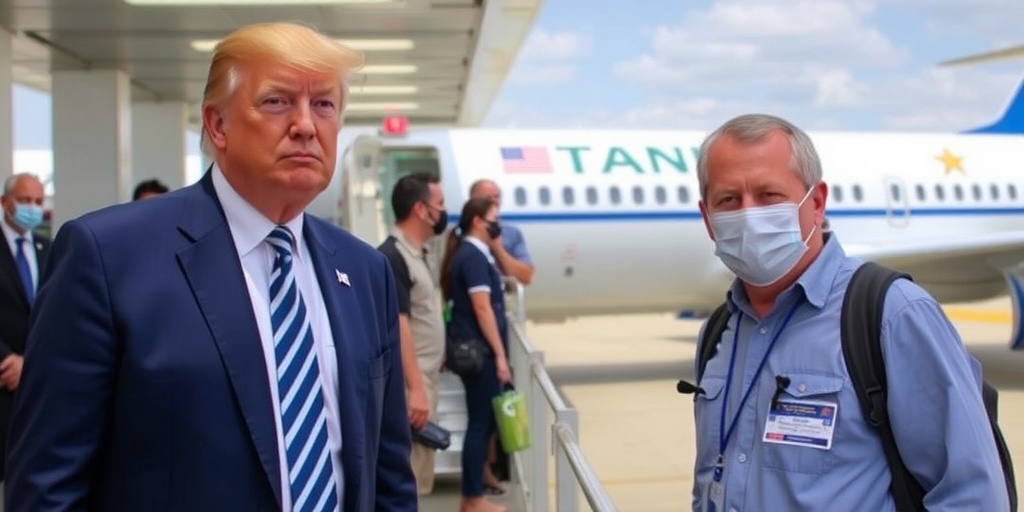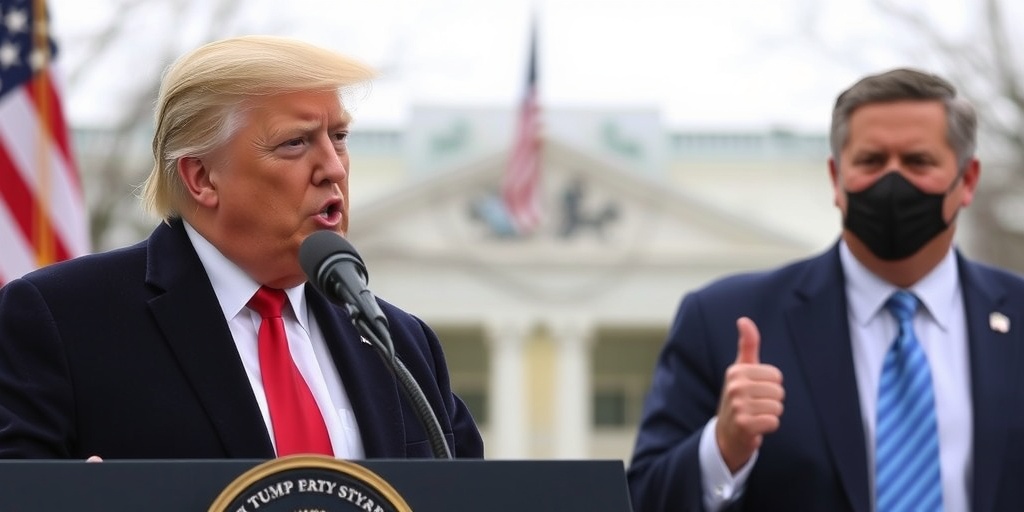Now Reading: Costa Rica Welcomes First Flight of Trump Deportees from Distant Nations
-
01
Costa Rica Welcomes First Flight of Trump Deportees from Distant Nations
Costa Rica Welcomes First Flight of Trump Deportees from Distant Nations

Title: First Group of Deported Migrants Arrives in Costa Rica Amid U.S. Deportation Tactics
Date: [Insert Date Here]
In a significant development on Thursday evening, a group of migrants, including dozens of children, landed in San José, the capital of Costa Rica, after being deported from the United States for illegally crossing the southern border. This marked the inaugural flight in what appears to be a new strategy by the Trump administration to manage migration and deportations—a tactic that seeks to redirect certain migrants to Central America.
The newly arrived migrants were part of a larger pattern, with three flights already dispatched to Panama last week. These flights included individuals from countries like China and Iran, where the U.S. faces challenges in arranging deportations due to limited diplomatic relations and other complications. This shift highlights the complexities and intricacies of U.S. immigration policy and reflects ongoing pressures to address the situation at the border.
The plane landed at Juan Santamaría International Airport, where reporters gathered to witness the arrival and capture images of the migrants. As they peered out from the aircraft, it became evident that the individuals on board were not in handcuffs, nor had their cell phones been confiscated, raising questions about the conditions of their deportation and what might lie ahead for them in Costa Rica.
According to officials, a total of 135 people were on the flight, comprising 65 children and 70 adults, with a diverse demographic mix including one elderly individual and two pregnant women. Omer Badilla, Costa Rica’s deputy minister of governance and the head of the country’s migration authority, indicated that all passengers traveled as family units. Additionally, it was announced that 65 more migrants would be arriving in the coming days, as Costa Rica has agreed to take in a total of 200 migrants as part of this initiative.
The group arriving from the U.S. consisted of individuals from over a dozen different nations, with a significant portion hailing from Uzbekistan, China, and Armenia. Other nationalities represented included those from Afghanistan, Iran, Turkey, Jordan, Russia, and Georgia. This diversity underscores the global nature of migration issues and the varied reasons people leave their home countries, often citing persecution and danger as motivating factors.
When confronted with questions about what would happen to individuals who refused to return to their home countries, Badilla expressed that "most, or almost all, want to return to their countries." He assured that specific cases of individuals seeking asylum or protection would be addressed individually, emphasizing that the U.S. was seeking assistance in deportation efforts, highlighting Costa Rica’s role as a cooperating ally.
As the flight concluded, it was noted that around 20 police officers were present at the airport to maintain order as the deportees disembarked several meters away from the throng of reporters and were swiftly guided onto buses labeled "tourism," evoking discussions about the treatment and dignity of migrants during deportation processes.
Costa Rica’s President, Rodrigo Chaves, underscored the humanitarian considerations that influenced the nation’s decision to accept the deportees, particularly the presence of children among the group. The country’s commitment to human rights and the ethical treatment of migrants has been a focal point of its national policy, and this situation is no exception.
After their arrival, the migrants will be moved to a facility known as the Temporary Attention Center for Migrants, located in the southern canton of Corredores, over 200 miles away from the capital. The Costa Rican government has decided against placing the migrants in hotels, a decision made to prevent scenarios reminiscent of the situation in Panama, where some migrants reported discontent and uncertainty during their stay.
The Costa Rican administration has also established parameters that stipulate the migrants are to remain in the country for no longer than 30 days, after which they are to be returned to their respective nations. The process of deporting these individuals will reportedly be overseen by various United Nations agencies, including the International Organization for Migration, and financed by the United States. However, President Chaves has acknowledged that, in some instances, the logistics surrounding deportations may take longer than anticipated.
This recent event has brought to light the evolving landscape of international migration and the intricate partnerships that countries forge to address these challenges. As Costa Rica assumes a role in assisting with U.S. deportations, the implications for migrants, diplomatic relations, and human rights will continue to unfold in the coming weeks and months.
Stay Informed With the Latest & Most Important News
Previous Post
Next Post
-
 01New technology breakthrough has everyone talking right now
01New technology breakthrough has everyone talking right now -
 02Unbelievable life hack everyone needs to try today
02Unbelievable life hack everyone needs to try today -
 03Fascinating discovery found buried deep beneath the ocean
03Fascinating discovery found buried deep beneath the ocean -
 04Man invents genius device that solves everyday problems
04Man invents genius device that solves everyday problems -
 05Shocking discovery that changes what we know forever
05Shocking discovery that changes what we know forever -
 06Internet goes wild over celebrity’s unexpected fashion choice
06Internet goes wild over celebrity’s unexpected fashion choice -
 07Rare animal sighting stuns scientists and wildlife lovers
07Rare animal sighting stuns scientists and wildlife lovers





















